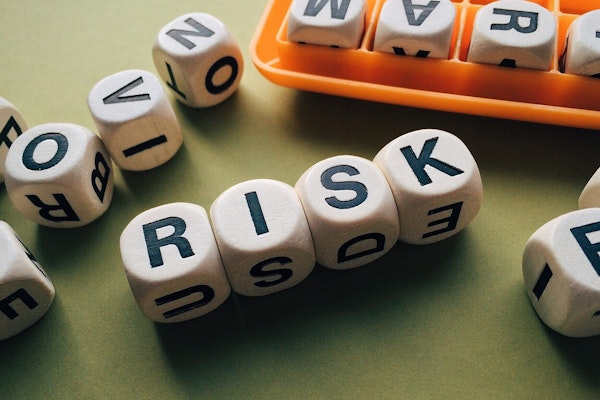
Giant Leap For Nationwide: Permanent Shift To Work-From-Home
Nationwide has announced plans to permanently transition to a hybrid operating model comprising primarily work-from-office in four corporate campuses and work-from-home in most other locations.
April 30, 2020
Risk Management
Arizona
Iowa
Ohio
Texas

COVID-19: Are We Saving Lives, Or Hurting Them?
As the COVID-19 pandemic response prepares to move into yet another month, many of us are beginning to ask, are we saving lives? Or are we hurting them? The answer is becoming increasingly obvious. It is “yes” to both. But how do we balance the solution?
April 28, 2020
Risk Management

Don’t Slip And Fall: Product Liability Coverage For The Cannabis Sector
A product liability claim presents some of the highest dollar loss potential for cannabis companies, according to Chris Boden, cannabis practice group team leader at the California-based wholesale insurance broker, Crouse and Associates Insurance Services. It’s one of the most severe exposures cannabis companies face, and yet not all businesses purchase product liability insurance coverage.
April 22, 2020
Excess & Surplus Lines
Liability
Risk Management

Big Data, Climate Change And The Talent Gap: The Biggest Risks We Need To Prepare For Now
The world is changing. Now more than ever, individuals and companies alike are connecting across the globe, expanding their enterprises as well as opening themselves up to potential risk.
April 16, 2020
Risk Management

COVID-19: Risk Manager Is Suddenly A Hot Job
Twenty years ago, corporate risk managers had near-zero public visibility. Most were back-office staffers who focused on securing insurance for environmental and real estate problems (tornadoes, fires, earthquakes, facilities breaches). Young people didn’t aspire to be risk managers: There were just a dozen small academic programs in the U.S. focused on the career.
April 14, 2020
Catastrophe
Risk Management

Eye Of The Beholder: Understanding The Psychology Of Risk Perception To Improve Risk Management
Individuals perceive risks in markedly different ways. One person may consider a risk to be critical, while another could consider it inconsequential. Often rooted in psychology, these differences in risk perception can create challenges for risk professionals, especially when designing and implementing an effective risk management program.
April 13, 2020
Education & Training
Risk Management

Politics In the Workplace: Are You Prepared For Claims Of Hostile Work Environments?
It is an election year, which means from now until the polls close in November, politics will be a big topic of discussion. With key electoral events every month of 2020 including caucuses, debates, and elections, and with news and social-media coverage of the same, employers should expect political discussions to find their way into the workplace.
April 3, 2020
Liability
Litigation
Risk Management

Insurers Must Look Forward, Not Backward, In Post-Coronavirus World
Insurance product creation historically has been based on historical data — the rearview mirror view. It always has been, and there is value in doing so. Past trends are likely to be repeated, and coverages and rating need to reflect that. And insurance departments require years of historical data to approve changes. However, there is a fundamental change afoot that cannot be ignored.
April 2, 2020
Catastrophe
Risk Management
Technology

Will COVID-19 Be The Tipping Point For Digital Transformation?
Countless articles about the implications of COVID-19 on the insurance industry are circulating in the digital universe. Many aspects of the industry will be affected, but the ultimate impact depends on the length and magnitude of the virus crisis, something that is difficult to predict.
March 25, 2020
Risk Management
Technology

Mass Retirement For Boomers Adds Urgency To Insurance Talent Search
The Risk Institute at The Ohio State University Fisher College of Business recently released data from its Fifth Annual Survey. Ninety-five percent of firms reported impending impact due to the mass retirement of baby boomers, with 60% saying it will have a high to moderate impact.
March 24, 2020
Education & Training
Risk Management

Reputational Damage: Insurance Faces A Crossroads In Post-Coronavirus World
Right now, in the midst of the COVID-19 crisis, it is tough to imagine the fertile environment for insurtech start-ups that the sector has enjoyed can last much longer. The crunch from social distancing, if not out-and-out restrictions on economic activity, will undeniably freeze the flow of cash to untested ideas.
March 24, 2020
Catastrophe
Risk Management

Cybercriminals Exploiting COVID-19 To Spread Their Brand Of Viruses
The mounting threat of COVID-19 has placed the healthcare system of many nations under a huge amount of pressure, and cybercriminals could be exploiting this to spread viruses - but instead of biological ones, these are computer viruses.
March 20, 2020
Life & Health
Risk Management
Technology

How To Lead And Collaborate In Claims
Much has been written over the years about what sets great claims organizations apart from all others, but none of these analyses really apply anymore.
March 18, 2020
Education & Training
Risk Management

End Of Days, Part 1: With Everything Cancelled, Why Are We So Busy?
Perhaps it was just plain ignorance. It might have simply been complacency. We have, after all, survived the end of the world a number of times. But this one caught us by surprise. Who knew that there would be so much to do during the COVID-19 end of days?
March 17, 2020
Risk Management

Claims Management And Effective Risk Management
The nature of mature, and by inference effective, risk management programs has claim management as a key focus as well. While risk maturity is directly correlated with risk effectiveness, this latter term encompasses a much broader perspective on things that matter.
March 17, 2020
Education & Training
Risk Management





